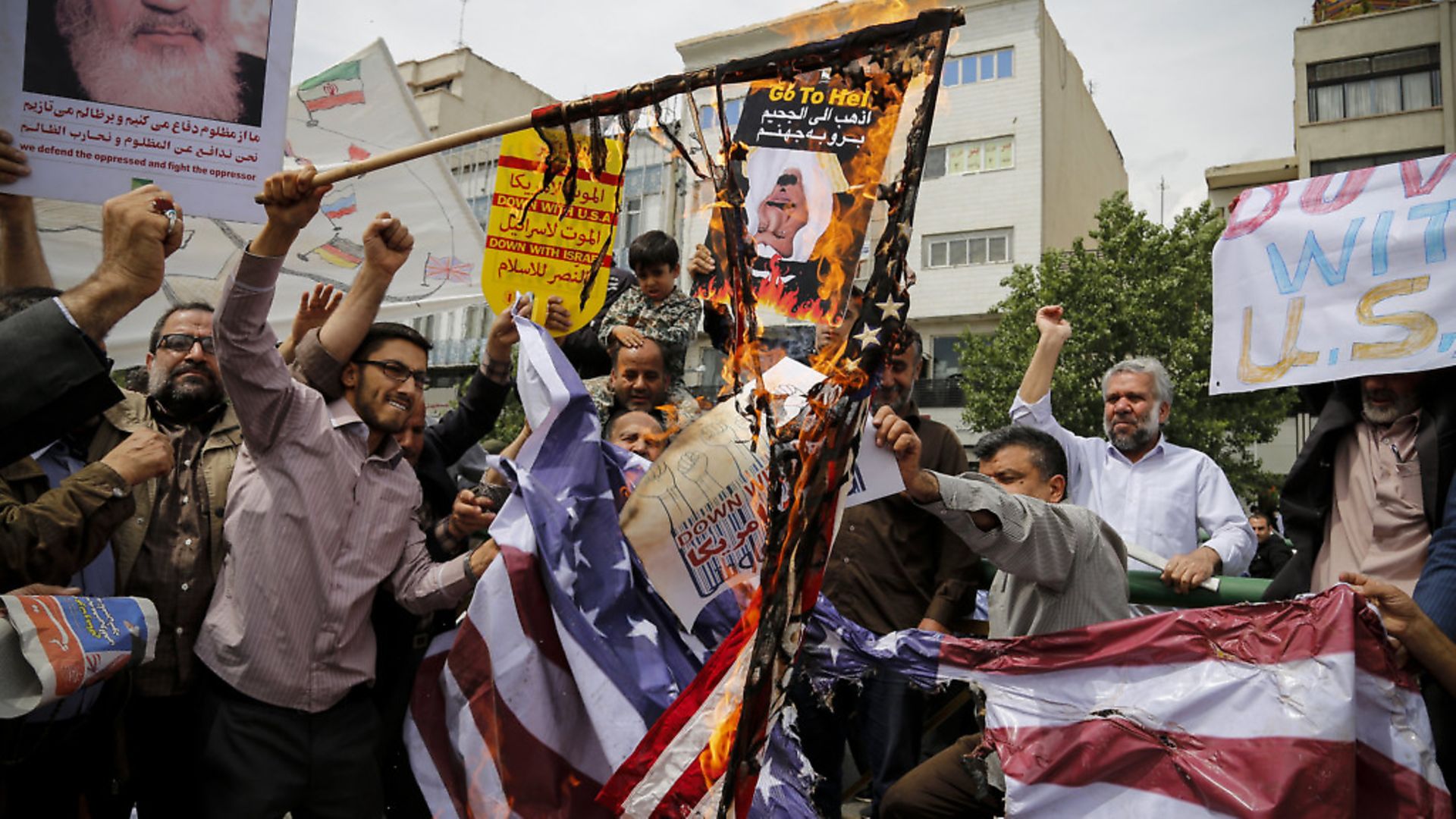
With Trump backing out of the Iran nuclear deal this month, James Ball questions whether the EU alone has the power to keep the policy together.
Foreign policy has always been a difficult and contentious policy area for the European Union – and always a point of friction with the UK, where even before the build-up to the Brexit vote any ambitions to expand EU foreign policy were viewed with suspicion.
The EU is forced, to an extent, to play some role in the foreign affairs of its member states, given that it oversees trade policy and deals for members – but each of its 28 (soon to be 27) members have competing interests and priorities, meaning any extension of EU foreign policy becomes a fraught issue for the bloc.
And yet it is clear that the EU will have to have some role on the world stage, as countries scrabble to prevent the collapse of the Iran deal. That agreement was signed between Iran and all five permanent countries on the UN Security Council (the USA, UK, Russia, China and France), plus Germany and the EU.
It lifted US and EU-wide sanctions on Iran in exchange for scrapping its nuclear weapon programme and allowing stringent inspections of its facilities. Iran had repeatedly been judged to be fully cooperating with the deal, but – perhaps simply just because it was signed under Barack Obama – Trump withdrew from it all the same, and said the US would act rapidly to reinstate its Iranian sanctions. US firms rapidly cancelled multi-billion contracts with Iran, including a $20 billon Boeing deal to supply Iran with civilian aircraft.
That leaves the deal still theoretically in place, but with Iran’s incentive for taking part all but shredded. The EU and the other signatories to the deal are now left with the task of trying to give Iran a reason to stay in the deal – which essentially means finding a way to make it possible for European countries to continue dealing with Iran, despite US sanctions.
In theory this might seem quite doable: why shouldn’t a German country be able to sell something to Iran, if it has no EU sanctions? The answer comes from the USA’s especially aggressive approach to its own sanctions policy: in general, the USA considers a company to be breaching sanctions if any US citizen, or any US territory, plays any role whatsoever in a transaction.
This means even huge multinational companies with major offices (and often headquarters) outside of the US struggle to keep themselves in compliance with such deals: if even, say, HR, accounts or part of the IT systems that enable trade to happen occurred on US systems, America may levy a multi-billion dollar fine.
That gets even harder when you look at the outsized role the US plays in the global financial system – it’s incredibly hard to move significant sums of money around the world without touching on US-operated systems, and the EU (which has a role in an EU-based rival banking system) may be the only bloc able to effectively operate without it. As a result, there are global calls – including from former Obama officials – for the EU to avoid being ‘Trump’s doormat’.
That still is likely to prove all but impossible – largely as almost everything straightforward was already tried. Trump administration officials have already threatened consequences against European countries who deal with Iran. Trump himself has already ignored calls from all three European leaders involved in the deal not to withdraw. The diplomatic approach clearly won’t move him.
The EU is left unable to go much further than that, because the interests of the EU’s member states don’t always align: sometimes the EU is one bloc, but more often it is a collection of two dozen states.
The US regularly gets overtures from the leaders of the UK, France, and Germany, each keen to be the closest transatlantic ally and secure US deals for themselves, rather than their rivals. There is only so much they will do overall to work together. Without strong and public cooperation from member states, the Commission is all but toothless on the world stage.
This is emblematic of the awkward halfway house in which the EU finds itself stuck: it has enough bureaucracy and power to have a role on the world stage strong enough to build resentment among member states, and make them fear they’re losing their autonomy.
But it doesn’t have quite enough autonomous power to make the most powerful countries outside the bloc pay attention to it: why should the US president phone the EU’s foreign affairs commissioner during a crisis when he can call the leaders of Germany, France or the UK directly?
The potential collapse of the Iran deal demonstrates a need for a diplomatic counterweight to an increasingly unreliable US on the world stage – and also demonstrates that the EU is not yet that counterweight. The member states will have to face that reality head-on – even as the UK heads out of the door, and into mounting irrelevance.
Warning: Illegal string offset 'link_id' in /mnt/storage/stage/www/wp-includes/bookmark.php on line 357
Notice: Trying to get property 'link_id' of non-object in /mnt/storage/stage/www/wp-includes/bookmark.php on line 37







